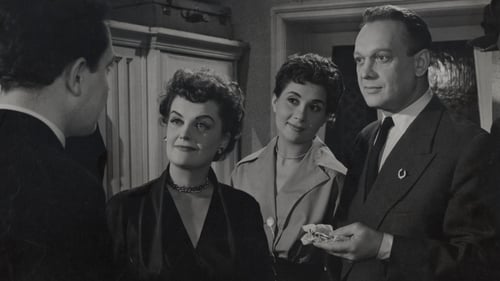Elma Bulla
출생 : 1913-08-26, Selmecbánya, Austria-Hungary [now Banská Stiavnica, Slovakia]
사망 : 1980-05-14

Giza
Karoly Makk's heartbreaking story of two unmarried sisters who cast wistful glances back at their lives, but still believe in hope and love, earned an Academy Award Nomination for Best Foreign Language Film in 1974. In this follow-up to the director's internationally acclaimed Love, Makk once again exhibits his extraordinary skills at drawing emotionally compelling performances from his talented female leads. Makk's film opposes the bleakness of the outside world with passion, love, and loyalty.

This film shows us around a factory in the seventies in Hungary. In the outskirts factory of Kőbánya workers celebrate the foundation members and want to present the oldest member, Uncle Benda, now a pensioner, with a golden ring. His grandson, Karcsi Merkovics, an industrial apprentice, is in love with the foreman's daughter.

Intézeti igazgatónõ
A 1970 film.

The film is a parable about honesty. The tired and sick country physician, doctor Weiss, has worked all through his life. He could finally withdraw from working, but his young successor leaves the district because of a trip abroad. Weisz is asked to continue working for some more time. For all his protestations, nobody seems to listen to him. Eventually, in spite of the protestations of his wife and his bad health condition, he consents.

Szeréna néni
Nelli, the icy, introverted farm girl, needs to find a husband following her father's death. She accepts the attentions of the noisy Takaró Sanyi, although she is more attracted to his silent and modest younger brother.

Ella Szemethy
Jirka is a composer, his wife, Jana, a pianist. Jana would like to have an own concert, but so far she has only been selected to accompany Valenta during his concerts in Budapest. After some resentments, she accepts the proposal.

Csûrösné
Csepel, 1945. The Csűrös family, in addition to their three children, give accommodation to the orphaned Jóska, although they themselves struggle with difficult circumstances. The boy lends a helping hand in the factory during the days.

Aunt Szabó

Csótiné
The "sleepless years" in this propaganda piece by director Felix Marlassy occur on Csepel Island, an island south of Budapest that is home to an armaments factory. The factory workers are shown being exploited by imperialists, capitalists gone berserk, and fascists, more or less in that exact chronological sequence. The heavy-handed approach does much to undercut the belief that when socialism finally takes over, the lives of the workers are brought up to a human level. In this instance, audiences might prefer a more nuanced and subtle statement, no matter what the message.

Tóth's wife
1932, Budapest. Gere János, an unemployed worker searching for employment in the capital, is organised into the secret police after a raid. Summary justice is declared, and the police wants to find an illegal communist press at any price. Gere, wandering about in the dark city, joins a man, helping him to carry his luggage. Slowly, Gere learns that his companion is a Communist and his task is to keep the press machine hidden from the police.

Györgyi néni
Varsa engineer receives the Kossuth award for his excellent work. His career once began at the family enterprise of his wife, so the woman invites her relatives for a dinner party.

Csériné
Marci is drafted from a typical block building in the 6th district in Pest. He says good-bye to Juli living in the same house, with whom they are both very much fond of each other, but neither of them makes a confession. Juli works in a factory, and with her friend Gizus she goes out in the evening for dancing and drinking. After a year, Marci comes back for holiday, he is full of love.

1952. The workers who have performed the reconstruction of the bridges are now needed at the construction works of the underground railway. During admission they are diluted with elements of doubtful fame and many of them are in a bad mood for the wages, too.

Mária

Dr. Kétzy, judicial council chairman, convicts the three participants of a bank-robbery. Also present is Cecil, who believes her brother to be innocent, and she vows to take revenge on Kétzy.

Titi
"Der Herr auf Bestellung" has the Weimar dream team of Walter Reisch as scriptwriter, Geza von Bolvary as director and most importantly, the incomparable Willi Forst as main actor. This 'musical burlesque' tells about a stylish young gentleman (Willi Forst) who works as a so-called 'Festredner'; an untranslatable term, it indicates a person who makes speeches at important events like marriages etc. for people who don't feel able to do it themselves. Willi lends his voice to a speech-impaired professor (Paul Hörbiger), but the baroness (Trude Lieske) who falls in love with Hörbiger only does so because of Willi's voice, and you can guess that this leads to all sorts of complications…












